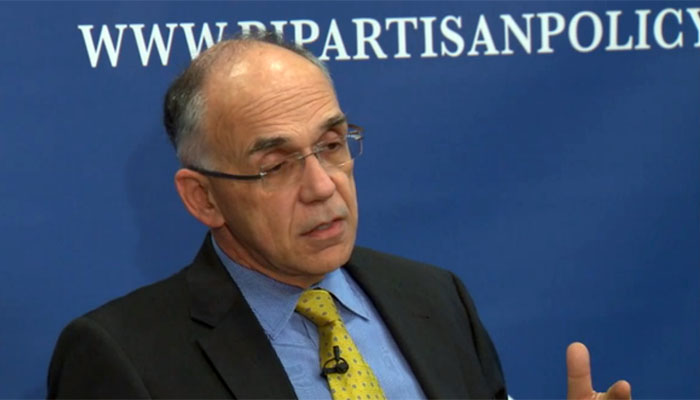US academic Henri Barkey, who is among those accused by the Turkish government of organizing of a coup attempt in 2016, has said it is impossible to know what really happened that day due to the lack of an independent judiciary in the country.
Barkey, an adjunct senior fellow for Middle East studies at the Council on Foreign Relations and the Bernard L. and Bertha F. Cohen Chair in International Relations at Lehigh University, spoke to the Homeland Security Today magazine for an interview on the occasion of the sixth anniversary of the coup attempt in Turkey.
Immediately after the abortive putsch on July 15, 2016, which claimed the lives of 251 people and was put down overnight, Turkish President Recep Tayyip Erdoğan pinned the blame on the faith-based Gülen movement and launched a massive crackdown on its real or perceived followers under the pretext of an anti-coup fight. Fethullah Gülen, a cleric resident in the US whose views have inspired the movement, strongly rejects any involvement in the coup attempt.
“No one knows the details of the coup attempt. Some believe that several groups, including the Gulenist sympathizers, may have been involved in the coup attempt. However, it is impossible to know about what really happened because Turkey lacks an independent judiciary. Anyone targeted by the government can readily find himself or herself in jail on fabricated evidence,” said Barkey.
He said he used to travel to Turkey frequently for research in the past but has been unable to do so since the coup attempt and hence has no means of investigating the failed coup.
“To me, it seems to be a bizarre coup. The Turkish military knows how to execute a coup. No one in their right mind would send tanks down to the Bosporus bridge at 9 p.m. on Friday while it is jammed with cars, and the streets are full of people,” said Barkey, referring to the blockade of the Bosporus bridge by soldiers at a busy hour on the night of the coup.
“I do not know if the government got prior information on the coup; my colleagues who also study Turkey admit they have no reliable information about the coup attempt. I hope one day we will learn more when various archives are opened to the public.”
After the news broke about an unfolding coup attempt, Erdoğan connected to one of the most highly watched news channels in the country, CNN Türk, and called on people to take to the streets to face the putschists. This was a first in the history of Turkey, which has experienced several military coups, for people to be mobilized by a president to fight the armed coup perpetrators.
Barkey said Turkey so far has not conducted any fair investigation into the coup attempt and that Erdoğan, who described the coup as a gift from God, exploited it to purge the civilian and military bureaucracy.
Following the abortive putsch, the Turkish government declared a state of emergency and carried out a massive purge of state institutions under the pretext of an anti-coup fight. More than 130,000 public servants, including 4,156 judges and prosecutors, as well as 29,444 members of the armed forces were summarily removed from their jobs for alleged membership in or relationships with “terrorist organizations” by emergency decree-laws subject to neither judicial nor parliamentary scrutiny.
With regards to the allegations voiced by some government officials such as Interior Minister Süleyman Soylu, who claim that the US was behind the coup attempt, Barkey said he does not think the Barack Obama administration at the time would have undertaken any coup attempt against a democracy anywhere in the world.
Yet he thinks US administrations are making a mistake by not providing a firm response to “these unfounded accusations by Erdogan and Soylu,” adding that he knows many academics and experts on Turkey in Washington, D.C., who would like to see the US speak more loudly on these issues.
Barkey, who was on Istanbul’s Büyükada island on the day of the coup for an international meeting as the then-director of the Middle East Program at the Woodrow Wilson Center, has been accused by the Turkish government and the pro-government media of being a CIA agent and among the organizers of the coup attempt.
“The media and government accusations against me happened very quickly and were detailed. They may have already made plans to involve and implicate me. Actually, we still do not know … the details of [the] coup attempt and it remains a big mystery for me,” Barkey said in the interview.
In 2017 İstanbul prosecutors issued a detention warrant for Barkey on suspicion of being behind the Gezi protests of 2013, the corruption operations of Dec. 17-25 in 2013 and the coup attempt in Turkey on July 15, 2016.
Pro-government media outlets claimed that Barkey was a CIA agent and had met with suspects in all the murky events in Turkey and abroad.
Barkey strongly denies the allegations.

